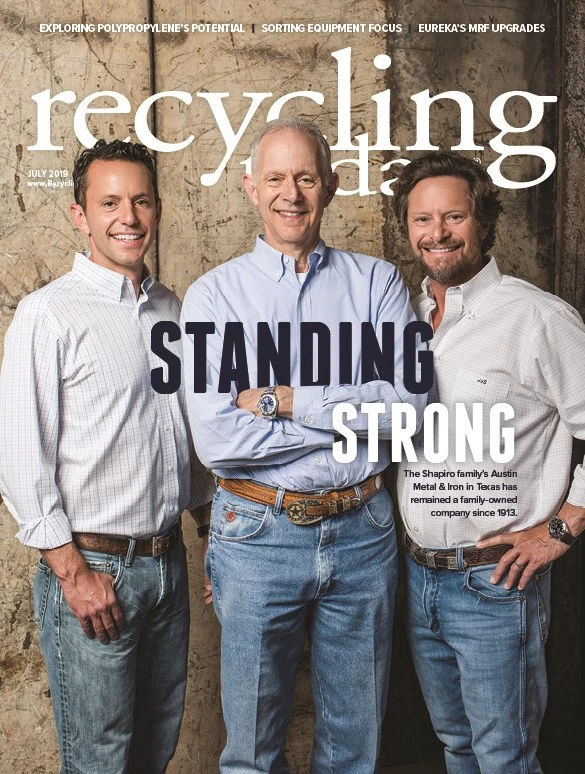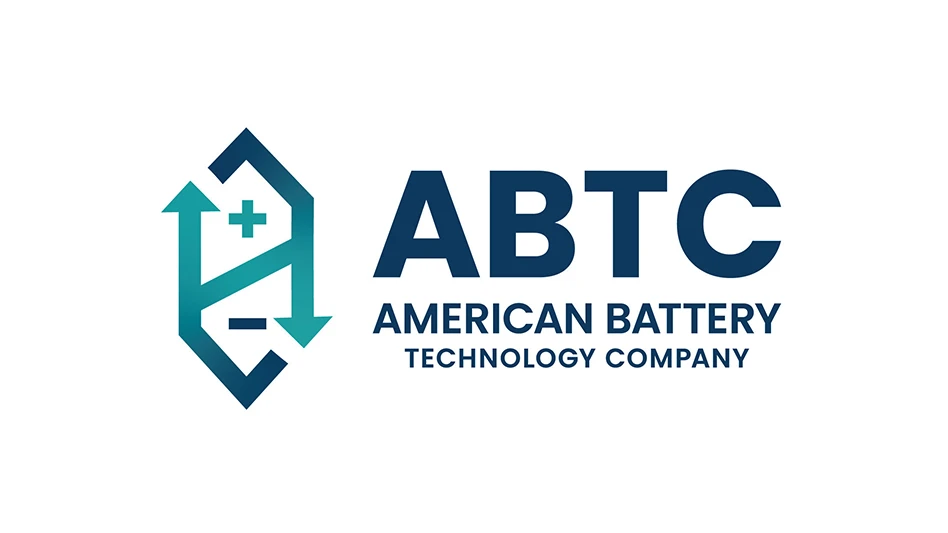

Envision Plastics, St. Joseph Plastics and PureCycle Technologies LLC are U.S. companies that are trying to find innovative ways to recycle polypropylene (PP). As technology advances, global brands increase their demand for recycled material and consumers’ awareness of the issues created by ocean plastic heightens, the market for recycled PP continues to grow and evolve. Reprocessors predict the market potential for recycled PP is “huge.”
Over the years, these three processors and others have been on a journey to recycle PP, testing and commercializing new technology, developing a postconsumer resin (PCR) for use in food-grade packaging and advancing processes to clean and pelletize curbside PP bales.
Envision Plastics, headquartered in Reidsville, North Carolina, is a reprocessor of high-density polyethylene (HDPE) and PP. The company also has a West Coast plant in Chino, California.
Tamsin Ettefagh, vice president of sales at Envision Plastics, has spent the past few years of her career advancing postconsumer PP recycling at Envision, with a focus on using the company’s HDPE recycling technology to create PCR that meets guidelines from the U.S. Food and Drug Administration (FDA) for food-grade packaging.
Longtime postindustrial PP recycler St. Joseph Plastics, which has one grinding facility and one compounding facility in St. Joseph, Missouri, as well as a washing facility in Sedalia, Missouri, has expanded its operations to reprocess postconsumer PP, with a mission to listen to customer needs and give curbside-collected PP a new life. The company has dedicated an entire facility to processing postconsumer PP collected from curbside recycling programs. This PCR is used to make consumer products today.
After testing technology developed and licensed by Cincinnati-based Procter & Gamble (P&G), Chicago- based PureCycle Technologies, which offers “virgin-like” PP resin, will mark a milestone in early 2021 with the opening of its first commercial plant in southeast Ohio. The plant, which will be able to produce 105 million pounds of recycled PP per year, is a step toward PureCycle’s mission to supply the global market with recycled PP, which it says is in high demand by global brands that have made sustainable packaging commitments.
Testing the market
After years of testing postconsumer PP resin for use in food-grade packaging and producing positive results, Envision Plastics earned a letter of no objection from the FDA in 2017. The company’s PCR is used to make caps for the dish soap bottles used by Seventh Generation, Burlington, Vermont, and other consumer product companies. However, Ettefagh says more work must be done to propel the recycled PP market forward.
“The problems with postconsumer PP today are yield losses are pretty high and standardized packaging in PP is pretty low, so getting a common blend at a high volume in a consistent color, these are all my challenges,” Ettefagh says. “Having said that, we have proven it can be done.”
Collection of PP across the United States is small compared with polyethylene terephthalate (PET) and HDPE. At the same time, processors are looking to work with material recovery facilities (MRFs) to establish guidelines for collection and material quality to better serve the market. Ettefagh says she has been working with a committee to create a “mass bale specification” to be distributed to all the MRFs in the United States. She says she hopes that the plastics industry will adopt the specifications and that they will become more standardized nationwide.
Supplying packaging companies also presents challenges for reprocessors. Envision is working to produce a variety of colors of recycled PP beyond the standard black and gray.
“Everyone who’s inquired on PP for packaging says, ‘But don’t you have a natural or white?’” Ettefagh says. “I get that every day.”
Switching gears
When St. Joseph Plastics noticed “large volumes” of postconsumer PP being collected through curbside programs six years ago, the company decided to begin processing that material in addition to postindustrial material.
“At first, we weren’t sure what we were getting into,” says Ron Moore, sales and purchasing manager at St. Joseph Plastics. “Now we understand it better. Now we’re really good at it.”
Processing postconsumer PP requires several additional stages, Moore says, than processing postindustrial material. St. Joseph Plastics operates plants to clean, grind and pelletize “dirty curbside” PP bales. The PP is then compounded and pelletized using extruders and customized pelletizing lines.
The misconception with postconsumer PP is that it’s a “dirty, degraded” material, Moore says. He adds, “Not necessarily so. Our customers have found that it can work very well in a wide variety of products. Even at 100 percent” curbside PP.
Over the years, St. Joseph has learned the benefits of recycling curbside-collected PP.
“Curbside PP is similar each time we buy it,” Moore says. “Consistency of material is important for our equipment and certainly for our customers. It doesn’t fluctuate wildly like you might expect.”
He adds, “Almost everything we make has some degree of postconsumer PP content now. We are trying to do our part to make the best available product and help our environment.”
While demand for postconsumer PP is up and global brands are more interested in purchasing the material, challenges remain to bringing recycled PP to the market, Moore says.
“There’s interest in the material, but much more activity is needed,” he says. “One of the challenges is price. Postconsumer PP can run competitively with virgin polypropylene. It’s a big commitment for brand names to sign on if virgin PP is cheap. Commitment has to about more than just price.”
As for the future of the recycled PP market, Moore says, “The potential is huge. There are established brand-name companies beginning to make commitments. Many new companies are in the research-and-development phase. Consumers are becoming educated, which will ultimately drive the usage of this material.”
Scaling up
When Mike Otworth, CEO of PureCycle Technologies, came to that company, he says P&G had a “strong desire” to use a higher percentage of recycled content in its packaging, but the quality of recycled PP was an issue.
“Polypropylene is the largest by volume resin that P&G purchased, and they use mostly food-grade packaging for most of their applications, so a solution that would enable them to use more recycled polypropylene was of paramount importance,” Otworth says. “There just wasn’t a technology out there that would afford them the opportunity to use more without making serious compromise in appearance and quality.”
A P&G polymer scientist’s work led to the development of technology that will be at the center of PureCycle’s first commercial plant. As part of the first phase of commercial operations, a $25 million feedstock evaluation unit is currently being commissioned. Otworth says the unit will test a variety of feedstock from around the world and will help PureCycle develop a blending system designed to meet its customers’ specifications.
He says PureCycle has presold all product from the commercial plant for the next 20 years.
“We’re seeing a willingness in the market to pay premium price for resin that looks and smells like virgin but is recycled,” says Otworth, who has spent most of his career working with companies to commercialize emerging technologies. “I think the demand is quite strong and continues to get stronger.”
Reflecting on his career, Otworth adds, “Sometimes the world is not quite ready for a technology or you’ve missed the window of opportunity. In my career, PureCycle is maybe the best example of technology coming along in almost the perfect time. We’re making a commercial product that the market globally very strongly desires.”


Explore the July 2019 Issue
Check out more from this issue and find your next story to read.
Latest from Recycling Today
- Circular by Shapiro releases "5 for Five" sustainability series
- Graphic Packaging set to close Ohio CRB facility
- Ameripen voices support for Maryland EPR bill
- Matalco to close Canton, Ohio, plant
- Maryland county expands curbside recycling to include electronics
- California EPS ban will be enforced
- YKK AP America introduces BetterBillet
- Fresh Perspective: Cameron Keefe





